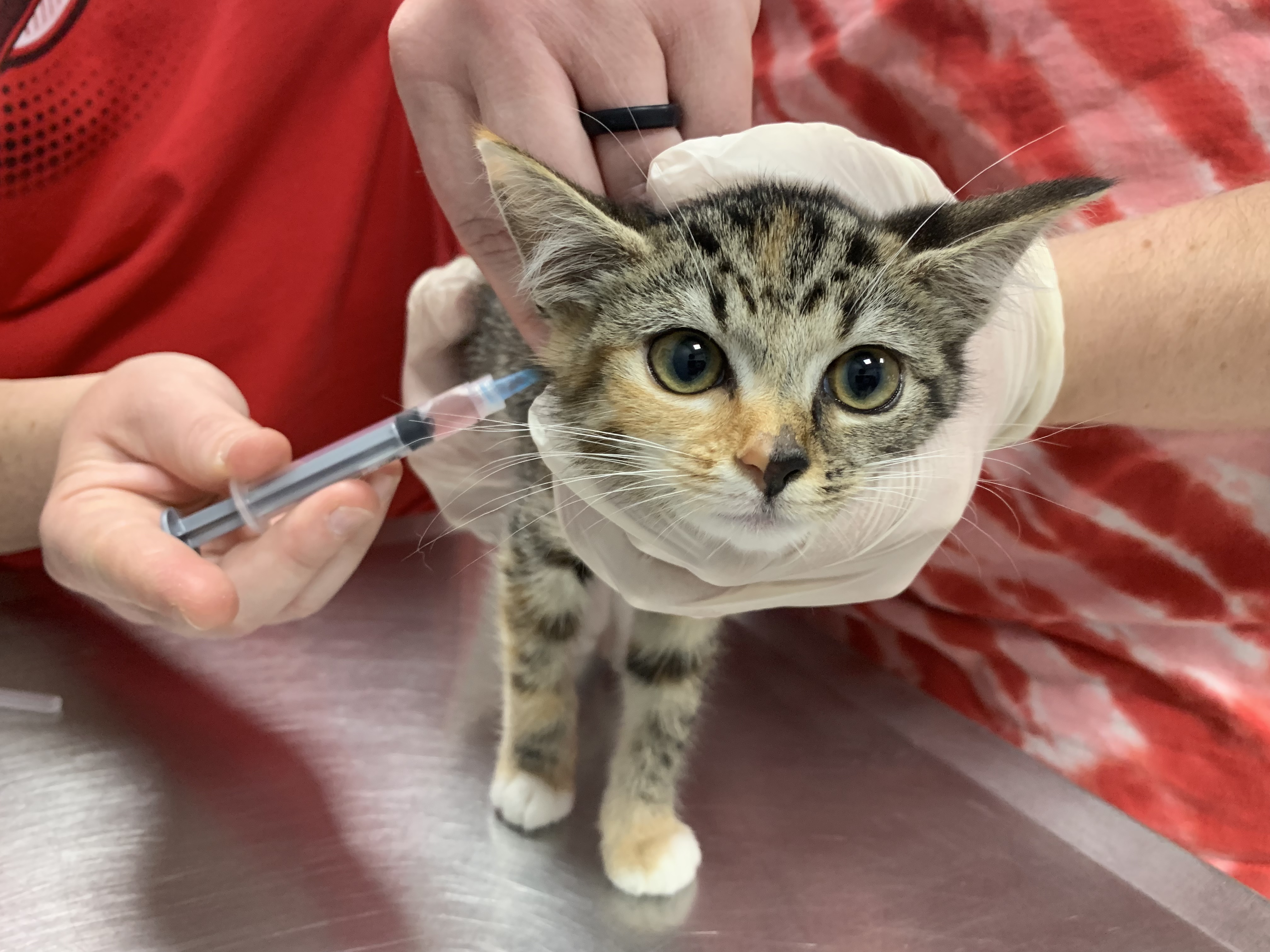En 2018, Forsyth Humane Society (FHS) recibió más de 6.500 animales de refugio. Eso es un promedio de 18 perros y gatos nuevos que entran por nuestras puertas cada día. Estos animales del refugio son vagabundos, fueron entregados por sus dueños, sacados de situaciones de abandono o perdidos. Con tantos animales que cuidar, ¿por dónde […]
FHS Animal Intake Process Part 1: Vaccinations
In 2018 Forsyth Humane Society (FHS) received over 6,500 shelter animals. That is an average of 18 new dogs and cats coming through our doors each day. These shelter animals are strays, were surrendered by their owners, removed from neglect situations or lost. With so many animals to take care of, where do we begin? […]




